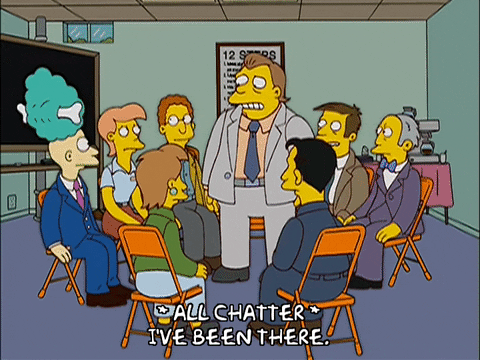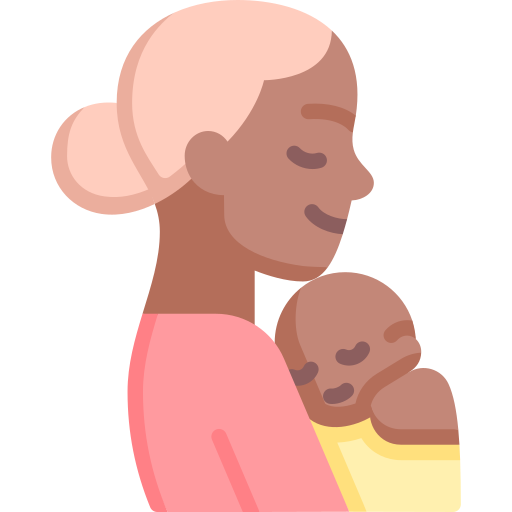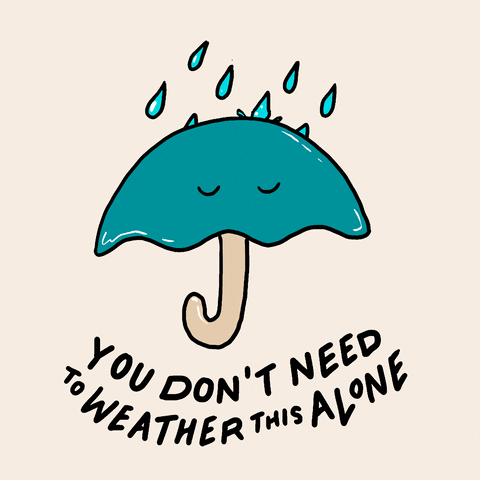
This logo isn't an ad or affiliate link. It's an organization that shares in our mission, and empowered the authors to share their insights in Byte form.
Rumie vets Bytes for compliance with our
Standards.
The organization is responsible for the completeness and reliability of the content.
Learn more
about how Rumie works with partners.
So you've been having some challenges.
Someone suggested that you participate in a group.

Not that kind of group! Group therapy.

Group therapy is any kind of therapy session where one therapist treats a group of people at the same time in the same space. It can be an effective style of therapy for many people.
But how do you know if it's right for you?
Who Could Benefit From Group Therapy?
Quiz
Which of these challenges would be suitable for group therapy? Select all that apply.
A child whose parents are going through/went through a divorce or a person who has an alcoholic family member could benefit from group therapy because they could meet with others experiencing the same thing. The group will help them provide support to each other, receive advice, and learn coping techniques. Chronic lateness is a bad habit and not something that requires therapy. Schizophrenia is a serious mental illness characterized by delusional thoughts. Due to the nature of the illness, group therapy wouldn't be an appropriate treatment for people with schizophrenia.
What to Expect
The format will look something like this:
You'll meet with a group of about 5-15 people who are experiencing a similar challenge.
Sessions take place regularly (usually weekly) and last 1-2 hours.
People sit in chairs in a circle formation and take turns talking.
A trained mental health provider moderates the group.

Did you know?
Benefits of Group Therapy
Group Therapy Isn't For Everyone
You experience social anxiety — it might be too overwhelming for you to discuss your personal challenges in a group.
You prefer more personalized attention — the focus won't always be on you.
You're in extreme crisis or suicidal — in these cases, you need immediate intervention from a trained professional.
You can't make the commitment — groups typically meet on the same day and time each week for up to a year.
Who Might Find Group Therapy to Be a Good Fit?

Abe is having trouble managing his anger. He was recently given a warning at work for blowing up at coworkers and being rude to customers. Abe's work requires regional travel during the week.

Mona,a part-time college student,has struggled with an eating disorder for years. She was recently discharged from the hospital after receiving intensive treatment and lives in an off-campus apartment.

Tara is a new mom experiencing postpartum depression. She's shy and has few friends, but her family is supportive. The baby and a part-time job keep her busy 24/7.
Quiz
Who might find group therapy to be a good fit? Select all that apply.
Mona would probably be the best candidate for group therapy. She could benefit from talking with others who struggle with eating disorders and learning what has helped them in their recovery. Her schedule is probably flexible enough to accomodate weekly appointments. Group therapy can be helpful for women with postpartum depression, but because Tara is very shy and also extremely busy right now, it might not be a good fit for her. Group therapy is also helpful for those dealing with anger management, but Abe travels a lot and might not be able to get to weekly meetings.
Take Action
If you think group therapy might be for you, take these next steps:

This Byte has been authored by
Mary Ellen D'Intino
Learning Designer | Licensed Social Worker
M.Ed., LSW
This Byte has been reviewed by
Yasmin R. Singh
RP (Qualifying), MA






